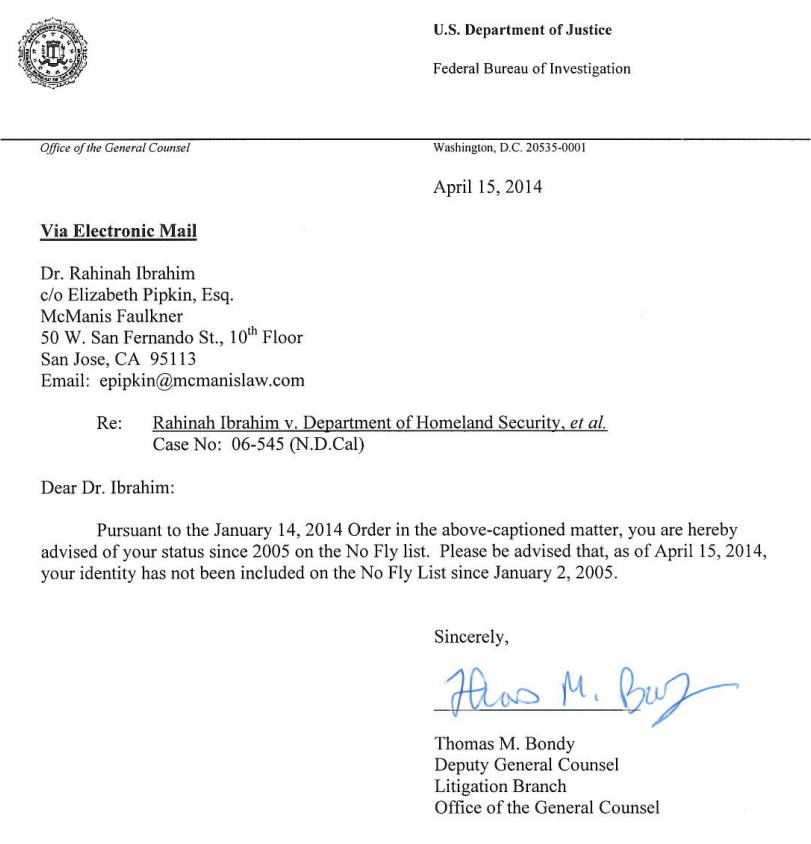Court to “review” TSA’s use of virtual strip-search machines
As we’ve noted previously, the US Court of Appeals for the 11th Circuit has scheduled oral arguments June 4th in Miami as part of its “review” of the TSA’s use of virtual strip-search machines. The Court may decide on the day to close portions of the argument to the public, but has overruled the latest objections of the TSA, which claimed that any oral argument would necessarily reveal “secrets” that would jeopardize aviation security.
Jonathan Corbett will be speaking for himself, pro se, before the Court of Appeals, as he has done throughout the tortured history of his lawsuit. Mr. Corbett has posted the latest round of appellate briefs in Corbett v. TSA, which provide a case study of how the TSA has sought to evade judicial review of its actions even when they involve extra-judicial restrictions on the fundamental rights of US citizens, residents, and visitors.
Corbett v. TSA charges that the TSA is engaging in unreasonable, suspicionless, warrantless, and unconstitutional searches of travelers. The case was originally filed in 2010 in U.S. District Court. But the TSA successfully argued that challenges to the Constitutionality of TSA orders, such as those requiring travelers to submit to either naked scanners (“advanced imaging technology”) or manual groping of their genitals (“enhanced pat-downs”), can only be heard by the Courts of Appeals. After the Supreme Court declined to review that jurisdictional finding, Mr. Corbett refiled his case in the Court of Appeals as a “petition for review” of the TSA’s (secret) orders.
The TSA’s claim is that the Court of Appeals can only review the “administrative record” submitted by the TSA itself. There is no trial, discovery, cross-examination, or adversary fact-finding process in the appellate court. The TSA can pick and choose what evidence to submit for review. Portions of that evidence have been shown to Mr. Corbett (on condition that he not discuss them publicly), but other portions have been submitted to the Court of Appeals ex parte and under seal. Mr. Corbett doesn’t know what they allege, and has no way to know what secret arguments or allegations he should be trying to rebut.
In a separate case, the Court of Appeals for the D.C. Circuit ruled that the TSA had violated the Administrative Procedure Act by failing to conduct a formal “rulemaking” concerning its use of virtual strip-search machines. Such a rulemaking must include notice of the proposed rules, an opportunity for the public to comment on them, and consideration of those public comments by the TSA before the rules are finalized.
Twenty months after being ordered to do so by D.C. Circuit Court, the TSA published proposed vitrtual strip-search “rules” and provided an opportunity for public comments. More than 5,000 people and organizations submitted comments, including the Identity Project. Almost all of the commenters objected to the TSA’s virtual strip-searches and groping of travelers.
More than a year after the close of the comment period, the TSA has yet to publish any analysis or response to these public comments, or any final “rules”. And although the TSA is required by the Administrative Procedure Act to consider these public comments as part of its rulemaking, the agency doesn’t appear to have submitted any of them to the 11th Circuit as part of the “administrative record” to be reviewed in Corbett v. TSA. This appears to be either an admission that the public comments have been ignored in the TSA’s decision-making, in flagrant violation of the APA, or an equally blatant attempt to deceive the 11th Circuit about the actual content of the record before the TSA.
